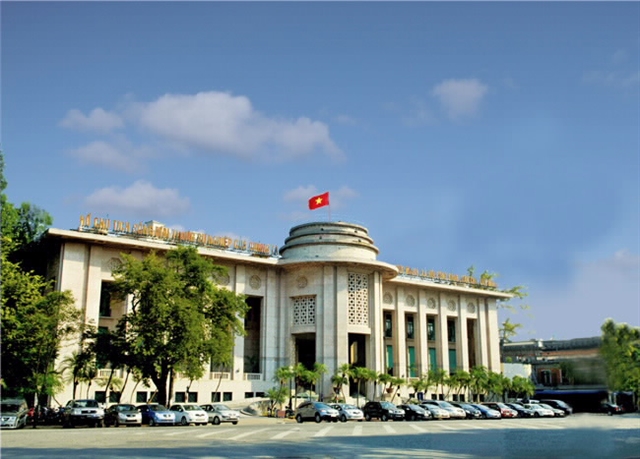 Opinion
Opinion

Ministries, departments and localities have been taking steps to transform State management in accordance with the Planning Law towards the direction “Government as a unity”. Planning on products, goods, and services will be replaced with standards and regulations, contributing to a fair and open environment for business and investment. To learn more about this transformation, Hà Nội Mới (Hà Nội News) Newspaper spoke to the Minister of Planning and Investment Nguyễn Chí Dũng.

|
| Minister of Planning and Investment Nguyễn Chí Dũng. Photo hanoimoi.com.vn |
Ministries, departments and localities have been taking steps to transform State management in accordance with the Planning Law towards the direction “Government as a unity”. Planning on products, goods, and services will be replaced with standards and regulations, contributing to a fair and open environment for business and investment. To learn more about this transformation, Hà Nội Mới (Hà Nội News) Newspaper spoke to the Minister of Planning and Investment Nguyễn Chí Dũng.
What is the significance and importance of the implementation of the Planning Law in the 2021 – 2030 period?
The Planning Law and 73 amended laws and orders, related to planning passed by the National Assembly and the 14th National Assembly Standing Committee, came into effect in January 2019. These have created a comprehensive and profound transformation in institutions, thinking, methods as well as the content of planning management. At the same time, it also required and led to changes in State management and the role of the Government in the socialist-oriented market economy in relation to the actual situations and international practices.
Planning in the multi-sectoral approach as stated in the Planning Law emphasises the consistency in State management, inter-sectoral and inter-regional synergy, addressing the situation where development goals, space and resources are partial and scattered.
As the country enters the first year of implementing the Socio-economic development strategy for the 2021 – 2030 period, ministries, departments and localities are simultaneously focusing on national, regional and provincial plans for the 2021 – 2030 period. This is a major opportunity to define the vision and development goals, to allocate and arrange the national and local development space in a comprehensive, logical manner; which opens up new development opportunities and space while effectively utilise resources for a rapid, sustainable socio-economic development.
After receiving approval, the national planning system based on the Planning Law, as well as technical and specialised planning for the 2021 – 2030 period will replace 19,285 plans of all types required before the Law took effect.
After more than two years since its effective date (January 1, 2019), what are the key results in the implementation of the Planning Law?
Under close and rigorous monitoring of the Government and the Prime Minister, ministries, departments and localities have been actively implementing the Planning Law and achieved five key results as follow:
First, regarding institutional improvement, instruction documents on the implementation of Planning Law and related orders were fully and synchronously issued by the authorities, forming the necessary legal corridor to proceed with plans for the new period.
Second, planning following the Planning Law has gained major initial results. According to reports from ministries, departments localities, it is expected that in 2021, 19 out of 38 national sectoral plans, one out of six regional plans, and 26 out of 63 provincial plans will be completed and submitted for approval; the others will finish the process in 2022.
Third, ministries, departments and localities have been taking steps to transform State management in accordance with the Planning Law towards the direction “Government as a unity”. Planning on products, goods, and services will be replaced with standards and regulations, contributing to a fair and open environment for business and investment.
Fourth, planning quality is being improved through the planning process, which is based on multi-sectoral approach and application of advanced technologies; addressing the conflict arisen due to individual planning.
Fifth, increased focus on the monitoring and evaluation of the implementation process, including the ongoing national information system and database on planning, will ensure transparency of information towards the public; while effectively assist management and promotion for investment.
In reality, several localities encounter confusion in planning using the multi-sectoral approach. Is this a challenge in the implementation of the Planning Law?
There were many challenges and difficulties. The first is that several detailed instruction documents on planning laws and decrees were not issued in time; a number of regulations are not consistent with the law on planning, which caused difficulties in planning creation and approval.
The second is, many localities still flounder in implementing the new regulations of the Planning Law, especially with the multi-sectoral approach. Provincial planning in the new methods is expected to integrate approximately 50 types of the previous sectoral development plans.
Thirdly, although there has been a recent acceleration in planning for 2021 –2030, the process has yet to catch up with actual demand.
The fourth is, the synergy between ministries, departments and localities regarding planning is still limited. Planning database and information still lacks consistency.
The fifth is, complicated developments of COVID-19 pandemic have been affecting field surveys, data collection, and consultation, making it difficult to mobilise experts, especially international organisations.
In particular, the implementation of Planning Law, requiring and proposing changes in the role of the Government in the market economy and the management method in the direction of “Government as a unity”, is also a new challenge.
Integrated planning will contribute to a fairer, more open environment for business. What are the new opportunities?
Simultaneous planning for the national planning system in the 2021 – 2030 period will be a major opportunity to define the vision and development goals, to allocate and arrange the national and local development space in a comprehensive, logical manner in order to open up and utilise resources for a rapid, sustainable socio-economic development while protecting the environment and adapting to climate change.
Implementation of Planning Law will address the conflict arisen due to individual planning; enhancing the coherence between strategies, planning, plans and investment; opening up new development spaces and opportunities, forming new investment and business lines; and ensuring balanced, effective, sustainable development goals between sectors, as well as between regions and the whole country.
What should be done in conducting research and planning to ensure progress and efficiency?
We have proposed to establish a National Steering Committee on planning, which will be led by the Prime Minister, on the basis of improving the function, missions, authority and responsibility of the National Planning Council.
It is necessary to steer from incohesive thinking and individual benefits. The potential and competitive advantages of each locality, as well as their challenges, should be fully assessed and addressed. Planning should involve innovative thinking and strategic visioning in accordance with global development trends; harmoniously combining international experience with local reality, as well as the knowledge, experience of the management and the capacity of planning consultants.
We have set ambitious goals and aspirations for the historical milestones in 2030 and 2045. This planning process is a step forward in helping Việt Nam realise those ambitions. — VNS




